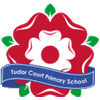Curriculum Overviews
The starting points for the development of our curriculum were the National Curriculum and our deep understanding of the needs of our pupils. We worked collaboratively to build on the outline provided by the National Curriculum, identifying precisely what we wanted our pupils to know and to know how to do. We have high expectations of all of our pupils, and we are committed to ensuring equity of opportunity and equity of provision.
Our curriculum places particular emphasis on ‘powerful’ knowledge and skills: that knowledge and those skills which our pupils may not otherwise have the opportunity to acquire in the course of their everyday lives, but which are important for understanding and for engaging meaningfully with the world. In addition to enhancing our pupils’ cultural literacy, we also focus at all times on preparing our pupils for the next stage in their education, be that the subsequent year group or Key Stage or their transition to secondary education.
Our long-term plans have been carefully designed so that content is sequenced in a logical and progressive way. As well as introducing vital elements of new knowledge and important new skills, each cycle of learning is grounded in what pupils already know and can do. This ensures that children’s previous learning is regularly retrieved and used or practised and that the overload of working memory is minimised (in order to maximise retention in long-term memory).
Because we respect the importance of discipline-specific conventions and knowledge, we teach subjects as specific domains (e.g. science, geography and so on). For this reason, our humanities curriculum is divided into four “cycles” per year: two with a history driver and two with a geography driver. Within each cycle, teaching focuses on developing subject-specific skills (as identified in our KS1 and KS2 Humanities Skills Progression Map) alongside building children’s schema of knowledge. Key concepts within subjects (e.g. “power” within history or “place” within geography) have been identified; our planning ensures that children at Tudor Court will encounter these concepts across year groups, progressively deepening their understanding of each one. Where relevant, links are also fostered between subjects. For example, the concept of settlement is explored as part of history units on the Stone Age to the Iron Age (Year 3) and Roman Britain, the Anglo-Saxons and Vikings (Year 4) but also revisited in geography units on earthquakes and volcanoes (in Year 4) and trade (in Year 5).
Our children’s literacy, in particular reading and the acquisition of vocabulary, is systematically developed across our curriculum. Children encounter a range of increasingly rigorous texts as they move through the school and build better contextual knowledge. Opportunities are also planned for children to develop an extended, subject-specific vocabulary.
In some subjects, we use externally prepared resources to support our planning process (e.g. the NCETM Primary Mastery Professional Development Materials in mathematics and Cornerstones in history and geography). However, teachers take ultimate responsibility for ensuring lessons enable all pupils to reach the end-point identified for each unit (e.g. answering the enquiry question in history or geography or the assessment questions on the DfE’s primary mathematics guidance, 2020).
We use on-going assessment to check our pupils’ understanding of the main curriculum elements. We respond appropriately through teaching and through adaptations to the design of the curriculum the children will meet in the future. All teachers take responsibility for making these adaptations under the guidance of subject and senior leaders.
Whilst we are proud of the work, we have done to develop our curriculum, we recognise the need to review it regularly and to continue to make improvements to ensure it best meets our pupils’ needs. Similarly, we recognise the importance of an on-going programme of high-quality professional development in supporting teachers to continue to design, deliver and assess the best curriculum possible for our pupils. Teachers also take responsibility for developing their own subject knowledge whilst planning units of work.
If you would like more information regarding the curriculum please email officemanager@tudorcourtprimary.com and our curriculum leader will answer any questions you may have.












